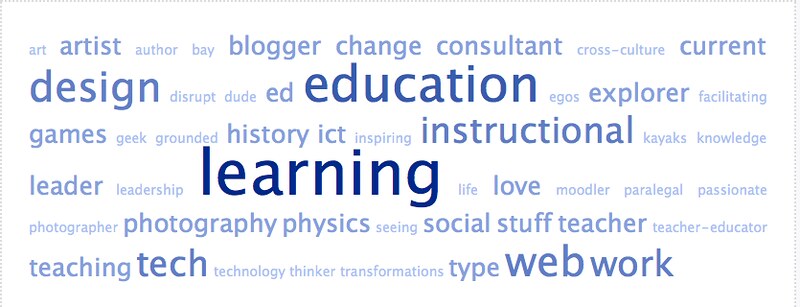
What Is An Education Consultant? How To Get Education Consultant Jobs?
Education consultants
Education consultants make a meaningful contribution to enhancing the quality of education. In shaping the academic lives of students across the country, education consultants serve as a guiding force to improve opportunities and classrooms.
Job description for an education consultant:
An education consultant is typically someone with previous teaching or administrative experience who now advises on all things education-related. This organization serves the educational community by training and advising them on new technologies, classroom policies, student achievement, and much more.
A typical day would consist of:
- Assist teachers, parents, school administrators, school boards; serve as an advisor.
- Examine education standards and classroom policies, as well as test scores and grades.
- Data-driven curriculum changes are implemented.
- To change curriculums or programs, survey students.
- An evaluation of the current educational system.
- Implement new policies and strategies aimed at improving educational quality.
- Offer teacher training workshops and create new training programs.
- Different educational materials should be recommended
- Utilize new technologies and implement best practices
- Contribute to the improvement of dropout rates by correlating systems
- Advising academic intervention programs
- Oversee the online education of students
- Manage the operations of charter schools
- Provide appropriate learning environments, including special education programs for students
- The college application and selection process guide
- To discuss program and budget issues with teachers and administrators
Read More: What Is Snails? Its Effects And How To Get Rid Of Snails With Description
Education consultants have a variety of options when it comes to how they target their consultation. They can work independently or as a team with the help of a consulting firm. Educational consultants can to provide general consultation on educational practices, but more successful ones tend to specialize in a certain field.
Education consultants for schools and post-secondary institutions:
Education consultants assist schools and post-secondary institutions in examining how their students learn holistically and providing recommendations to improve policies and programs. A school might also hire an education consultant to examine a specific problem and design a customized solution.
Programs, policies, and priorities are often overhauled by consultants in these positions. They assist assistance by training faculty and advising administrators and board members on turnaround initiatives. Charter schools and their educational policies may be managed by education consultants.
Providing education consulting services to individuals and families:
As independent consultants, some education consultants work one-on-one with individual families. Consequently, the consultant must tailor solutions to meet the needs of each student. Usually, these consultants specialize in working with special populations, like athletes, at-risk youth, and international students.
We will match your children with the right learning environment, whether it is a public, private, or boarding school, remedial services, or special education. They will guide students and their families through the application process and advise them on college choices.
A consultant who works for a product-driven company or government agency:
The third type of education consultant works for textbook publishers, learning companies, and educational technology companies. The consultants they work with are focused on developing great educational products that will improve student achievement.
Consultants in education working for the government collect and evaluate the information for their superiors. Evaluation of resources, advice on alternate sources, and presentations on potential outcomes of government and business programs are some of the activities they may perform for their employers.
How does an education consultant make a difference?
A person who is:
- Analytical and capable of making decisions
- Attention to detail and a well-organized person
- A service-oriented organization
- Good at planning and organizing
- Ability to connect with students, teachers, and school officials through empathy and sociability
- Expert at identifying problems and brainstorming potential solutions
- Communicates effectively both verbally and in writing
- Capable of both independent and collaborative work
- Achieves are aggressive deadlines.
- A passion for travel and a willingness to work in diverse environments
- An education qualified or curriculum and instruction degree qualifies
An in-depth look at education consultants:
While education consultants without advanced degrees may be able to succeed in their careers, those with advanced degrees in a relevant field are more likely to be promoted and receive higher salaries.
A majority of employers prefer to hire education consultants with advanced degrees in curriculum and instruction. A master’s degree is often required in addition to a valid teaching credential in many school districts.

Seek education consultants with expertise in the following areas:
- Education in English/mathematics
- Design of the curriculum
- Education through audio/visual media
- Technology that is emerging
- Blended learning
- Testing
Certification:
It is common for independent educational consultants to register with organizations such as the Independent Educational Consultants Association (IECA) or the American Institute for Certified Educational Planners to increase visibility with potential clients.
An application, a master’s degree, and references, as well as an assessment interview, are required by
The IECA requires a master’s degree or higher from an accredited institution, three years of experience in educational placement counseling or admissions, on-campus evaluations, and professional references from its members.
Employment projections for education consultants
In the increasingly competitive education industry, there is a growing need for passionate, motivated education consultants. Between 2018 and 2028, the BLS projects 6% growth. Local and state governments are responsible for a large portion of the growth. Despite these changes, districts and postsecondary institutions will remain accountable for test scores, graduation rates, and student achievement data. As schools look for guidance and training in areas including technology and curriculum, education consultation will become increasingly common.
Adapting to the challenges of 21st-century education requires schools to adjust their teaching methods, as society becomes more complex. As an education consultant, you can assist in implementing the best technologies and educational techniques in classrooms across the country by offering advice to teachers, students, parents, school administrators, and school boards. Those who wish to improve educational best practices may find rewarding and expanding career opportunities in educational consulting.
Conclusion
The role of an educational consultant is to provide academic advice to students, teachers, schools, and other organizations regarding their educational plans. The counselor may help students move from one educational program to another, guide teachers on curriculum, recommend textbooks or assist educational institutions in developing new procedures.
Apart from this, if you are interested to know more about Benefits of Study Abroad Consultants then visit our Education category.




